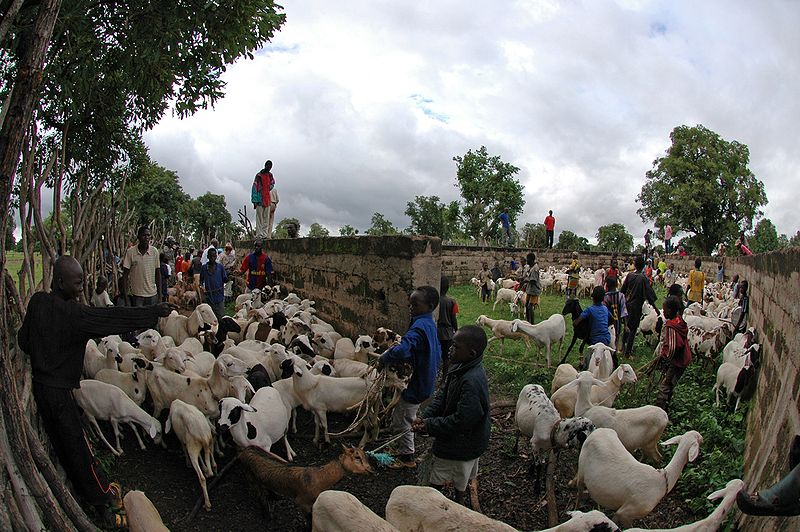 The affected individuals already belong to the most vulnerable in Mali. The Government acted without prior consultation with them and has not taken steps towards compensation or resettlement, which is in breach of human rights obligations.
The affected individuals already belong to the most vulnerable in Mali. The Government acted without prior consultation with them and has not taken steps towards compensation or resettlement, which is in breach of human rights obligations.
On the 19th of January 2010, FIAN sent an urgent open letter (see attached documents on the right) to the authorities to stop the invasion of the plots by the bulldozers. Nevertheless, an international action to support the victims is necessary. FIAN calls everyone to write to the President of the Republic, to the Minister of Housing and to the President of the Supreme Court to forward the demands of the N’Tabacoro families.
Eviction effects 1000 people
The Malian Government announced in February 2009 its plan to build social housing in N’Tabacoro, Kalabancoro, on the outskirts of Bamako, the capital of Mali. This project involves the construction of thousands of accommodations for leasing. An eviction decree (n° 09-190/P-RM) was signed on the 14th of May, 2009. Another one from the 3rd of June, 2009 created the Land Title n°40.395, owned by the State. The property of the land has thus been transferred to the State without prior and fair compensation.
n°40.395, owned by the State. The property of the land has thus been transferred to the State without prior and fair compensation.
The eviction particularly affects 30 peasant families (about 1000 people), who have been living on this land for generations. The families depend on their traditional lands economically, socially and culturally. In 1978, an effort of registration and titling of these lands was undertaken. The peasants were then given a letter of attribution, which constitutes a provisory ownership title. In most cases, the promised formal title has never been delivered.
The affected families own between 2 and 5 hectares and have to feed between 15 and 50 persons each. In the 1970s, other families moved to the area. The latter do not live solely out of agriculture, but most of them cultivate food for the local markets. Neither they nor the 30 peasant families have been awarded adequate consultation, compensation, or alternative solution, which is a breach of international standards and obligations.
Complaint against the State
On the ground, the private constructors already lay the first stones despite the lack of a final agreement on the dispute. Faced with this situation, the victims created ‘l’Association des propriétaires de parcelles et des concessions rurales de N’Tabacoro’ (APPCR) in June 2009. The APPCR filed a complaint against the State before a court on the 20th of July 2009, arguing the non-respect of the Land Code (code domanial). It was only following this legal claim that the Government accepted to hold a roundtable in July 2009.
A commission in charge of the counting, delimitation and evaluation of the plots started its work in October 2009. Nevertheless, the inhabitants and the Government still disagree on the plots concerned  by the eviction. No compensation or alternative solution has been offered yet.
by the eviction. No compensation or alternative solution has been offered yet.
The food situation is alarming for the peasants, who were forbidden to cultivate in June 2009, in the middle of the rainy season. Some of them hesitated and planted too late, and did not harvest enough to feed their families. Others did not plant at all. All are forced to use various survival strategies. Most of the men of the affected families have to work as daily workers. Some of the families have to borrow money from their relatives, while others sell the water from their wells.
Mandate
Mali is a State Party to the International Covenant on Economic, Social, and Cultural Rights, as well as to the African Charter for Human and Peoples’ Rights, and the country has the obligation according to international and regional law to respect the right to an adequate standard of living, including the right to food and to water, as well as the right to housing of people living in N’Tabacoro. The right to adequate food involves the respect of the existing access to the means to feed oneself, as well as the access to resources necessary to produce food.
Contact information
For questions please contact us by phone: +49 6221 65300 30, fax: + 49 6221 830 545 or an e-mail, www.fian.org.
Documents:




